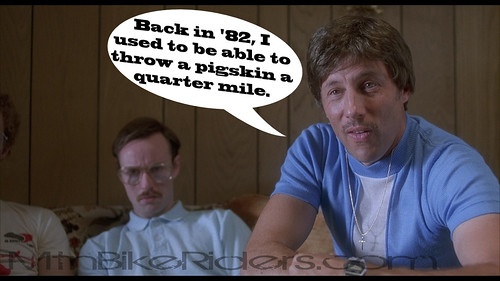As I stated before, my assumption is that the coaches didn't really plan for their QB to go rouge with the play so why call a timeout?
You like to request proof, where is this proof that the play was all out of whack?
(Also I bet they were a little hesitant to call a timeout given that calling one late against BYU very well could have cost them a win there)
As much as it pains me to be in agreement with cm, what you're talking about makes no sense.
If you don't call a timeout in the situation, the clock runs all the way through the game clock and you hope/think that it will keep running after the play is over.
If you do call a timeout in the situation, you lose 1 second of game clock that otherwise would have been running, but you make absolutely, without a shadow of a doubt, certain that everyone is on exactly the same page. They were out of formation. If the only real cost is one extra second when Illinois would have been left with less than :15 total, and the payoff is potentially avoiding disaster, you see them out of formation and that is an easy, automatic decision to make.
The BYU scenario couldn't be more different.

